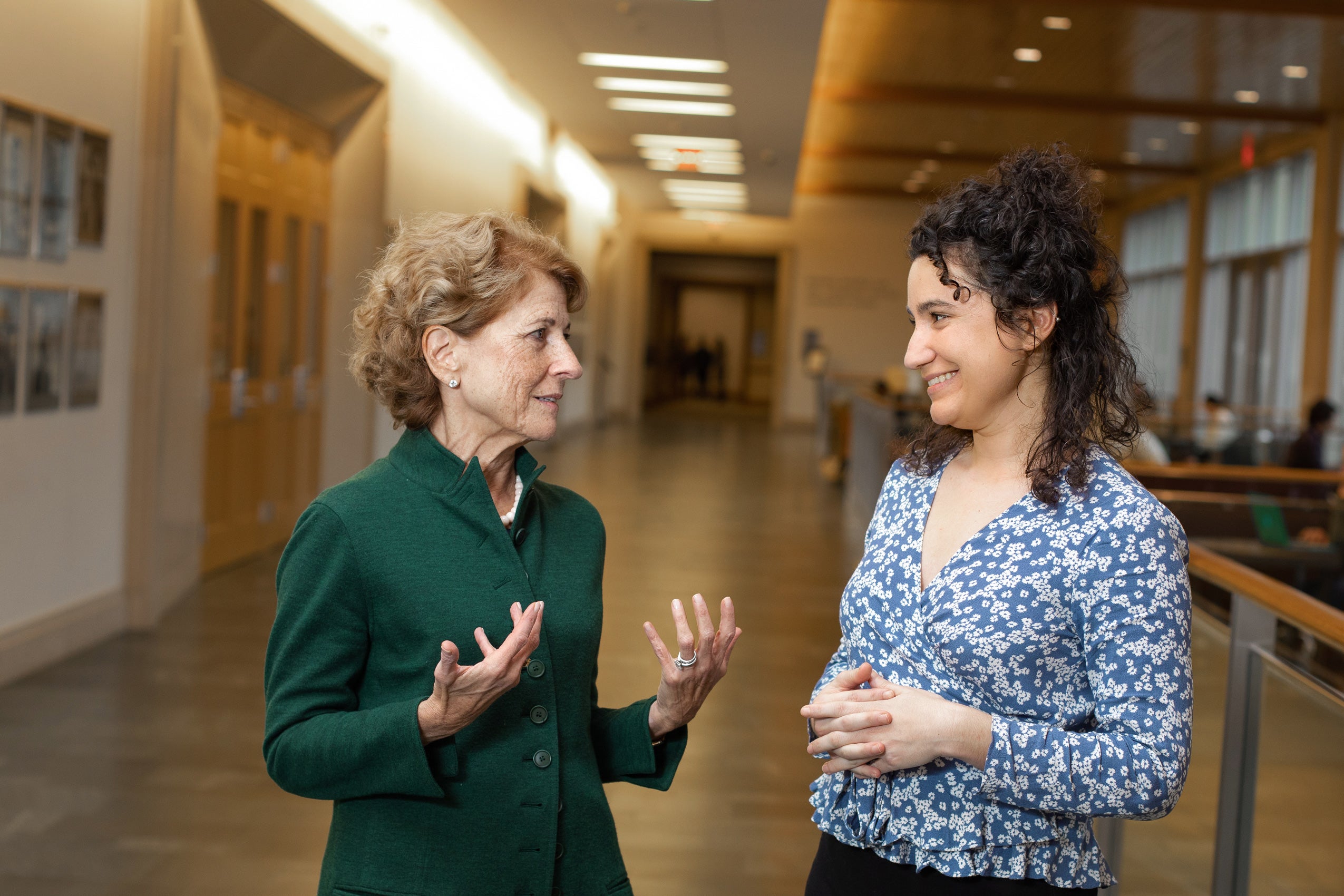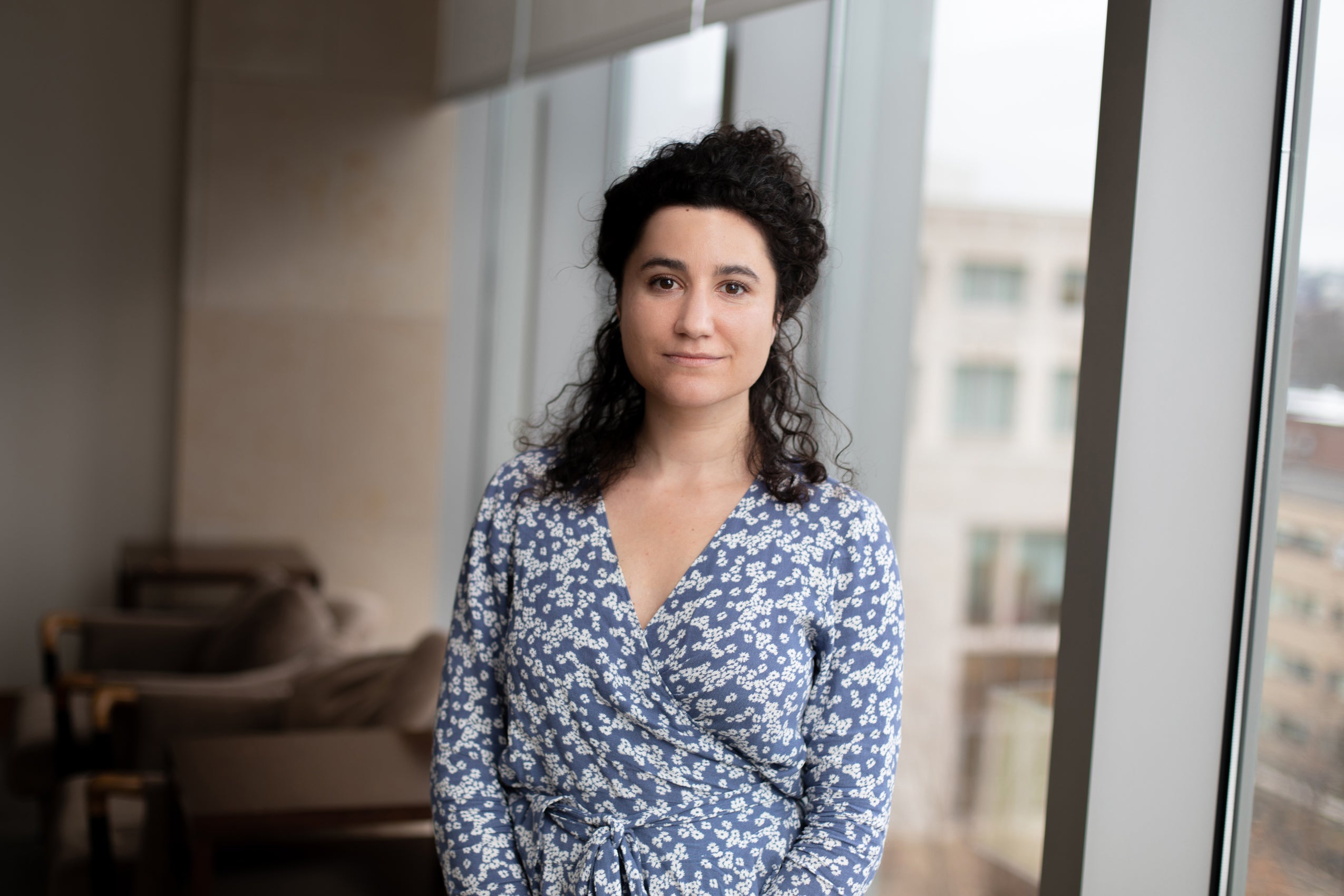For many women giving birth in hospitals, the experience is far harsher than necessary. Call it one of the medical industry’s darker secrets, but patients are often subjected to nonconsensual procedures and other mistreatment during the birthing process. Alexa Richardson ’21, a student fellow at the Petrie-Flom Center for Health Law Policy, Biotechnology and Bioethics at Harvard Law School, is currently working to bring this situation to light.
Working with mentor and advisor Rina Spence, the former president and CEO of Emerson Hospital, Richardson is writing a paper, “The Case for Affirmative Consent in Childbirth,” that argues for legal tools to address the issue of “obstetric violence.” While medical groups, patients, and bioethicists often recognize that nonconsensual procedures during childbirth are unethical, there is as yet no legal enforcement.
“Obstetrics is stuck in another era,” Richardson said. “We have a notion of consent that has erupted in the sexual consent lens, both legally and culturally—The idea that you have control over your body and can say no. But that is not where obstetrics is at. I want to qualify this by saying there are a lot of incredible providers, and those people are advocating for change. But the guiding principle in childbirth continues to be that the doctor is in charge, and a lot of procedures simply occur without any explanation or choice on the part of the birthing person.”

According to Spence, the problem is more widespread than even she had imagined. “What happens in the medical world is that patients don’t always come forward; they think what’s happened is normal or that they were at fault. And that I think was Alexa’s point: They are vulnerable, and it takes an extraordinary situation for someone to say, ‘This should not have happened and I’m going to report it.’ It’s very similar to #metoo in that regard.”
Adds Spence, “The one comment I had about Alexa when I started working with her was that she was so much ahead of me—she had the background and the understanding of where she was going legally. She’s brilliant.”
Richardson’s journey began when she entered Kings College in London as an undergraduate during the late 2000’s, aiming to study reproductive rights. She wound up spending three months researching hospitals in Guatemala, at a time when indigenous women were seeing high rates of fetal and maternal mortality. Though the government had invested millions in new hospitals, she was surprised to learn that women still preferred to give birth outside the hospitals, due to the treatment they would receive there.
“What I saw was frankly horrifying,” she says. “Women were given nonconsensual vaginal exams, by as many as 12 students. They were called ugly, they were called dirty, their toenails were being made fun of. They were given cesarean sections without being told what was happening or why; there was a 46 percent C-section rate which at the time was exorbitantly high. This was a really galvanizing experience for me, and I came out of it committed to the idea of informed consent. And where I’m going with this is that it’s not that different from what’s happening in the U.S.—the difference is in degree not in substance.”
To become more directly involved, she began attending births herself. Returning to Maryland she first worked as a doula, providing medical and emotional support to women during hundreds of births, and ultimately became a Certified Professional Midwife (the title given to women who normally work outside of hospitals). The only problem was that the practice was prohibited by law in six states, Maryland included. While midwives and families were rallying, the movement had no leader, so she stepped forward and became president of the state midwives’ association.
“That was my life for years. And it was an incredible process, we had thousands of women all over the state coming to Annapolis. We had the Amish come in buses to Annapolis, unload their pews and just sit there, the women on one side and the men on another. We sold bumper stickers—‘I’m Pushing for Midwives,’ ‘Support Midwives, Make Love’. So it was not a solo effort by any means, there was a whole community of people who wanted to see it happen.” When the bill passed in 2015, Richardson was honored with the first midwife’s license issued in Maryland.
One of the best-known instances of obstetric violence was that of Kimberly Turbin of Los Angeles, whose obstetrician performed a nonconsensual episiotomy, cutting her perineum (the area between vagina and anus) twelve times during labor, despite her protests and screams. This incident was caught on a video that got a half-million YouTube views and Turbin reached a settlement after suing her obstetrician for assault and battery.
“I think this is only a matter of degrees away from behavior that is common in labor,” Richardson says. “There is an authoritative power dynamic that runs deep, where the patient needs to be a passive player in the birthing process.” This, she suggests, speaks to the underlying philosophy of medicine. “It goes deeply into medical ethics, and it goes into abortion jurisprudence. And it brings in the state interest in fetal life, and to what extent the state can control a pregnant person’s body.”
While Richardson ultimately hopes to see legal solutions, she also wants to provoke a dialogue. “I think we’re at a moment where a lot of mobilizing is taking place. There is potential that this kind of work will push the situation more into the open, even if it causes a lot of backlash by providers. My goal is to make the argument for affirmative consent in childbirth as a legal standard that can be enforced, and to put that in the mix of the grassroots movement that’s happening now.”
